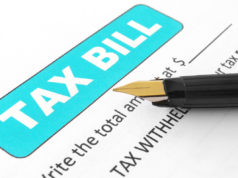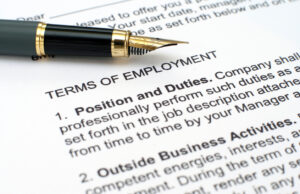
Unfortunately, for many people, financial emergencies are more than just “what if” scenarios. With levels of joblessness on the rise and the wake of a global-wide pandemic to contend with, millions of people are experiencing exactly what it feels like to have unexpected bills they cannot afford to pay and no reliable source of income. So, what should you do in a real financial emergency? Here’s our six point guide to help you on your way.
Page Contents
1. Don’t panic
That’s exactly the sort of advice you probably don’t want to hear. If you can’t pay your rent or mortgage, you’re bound to panic. However, getting upset and making rushed decisions is the last thing you want to do and could potentially place you in a weaker position in the long term. It’s important to remain cool and calm. Give yourself some time and space to assess the situation fully and make the best decision given your circumstances.
While it is still important to act quickly in these situations, in most cases taking an extra few hours to collect your thoughts and think strategically with a clear head will stand you in better stead.
2. Phone a friend or family member

When times are hard financially, the temptation for many people is to retreat and try to deal with the situation on their own. It can be embarrassing to explain to your nearest and dearest that you’re struggling and you need help but it shouldn’t be. The stigma around financial health is deep rooted and hard to shake off completely. Just remember that we all need help from time to time, and wouldn’t you want a friend or family member to come to you if they were in trouble?
A loan from a friend or family member is realistically the best way to access the credit you need. The cash is likely to be available quickly and at a low rate of interest (if any). Just be sure to write down the terms of the agreement and only borrow money that you know you’ll be able to repay. While there are many benefits to borrowing within your social circle, there is of course the potential risk of destroying relationships should the agreement go awry. Be wary that this can happen even if you keep to your side of the agreement. People can change their minds, financial circumstances can change and they may suddenly need to call time on your loan prematurely in spite of your agreement.
3. What can you sell?

If you need money now and do not have an emergency fund or a friend or family member you can borrow it from, it might be time to make some difficult decisions about the possessions you could potentially sell. You should only ever sell non-essential items. For example, if you have a perfectly good desktop computer but also have a laptop for convenience, selling the laptop might be a relatively painless way to raise some quick cash. There are a plethora of websites and apps available where you can list virtually any item for sale. Check Ebay, Gumtree and Craigslist for some of the biggest platforms. Facebook also has rapidly expanding local groups for this sort of buy and sell environment.
Of course, you can’t keep selling your possessions every time you’re struggling financially. Over the longer-term, you may need to make more significant changes to your lifestyle; such as your vehicle, housing or work situation to avoid a similar emergency in the future. If you’re going to make big changes, always keep your priorities in mind.
4. Find short-term work

The internet era affords us many opportunities, one of the most revolutionary being that it’s easier than ever to make money sitting in your living room on a laptop. There are literal books written on this subject but just to give you a sampler on what’s available to an ‘ordinary’ person with no specific set of specialised skills:
Online surveys, freelance content writer, you can produce your own bespoke services on freelancer websites offering just about anything; the only limit is your own creativity and marketability. Obviously if you have additional skills and training the online freelance world opens up significantly from selling stock photos to graphic design, website creation and online teaching.
The point being that regardless of your skill set and previous experience, it is possible to find work online if you’re committed and motivated to do so.
5. Look at emergency loan and credit options

If you’ve come this far in our list it’s likely you’re going to have to incur debt and the interest repayments that come with it. Looking to family, selling and even your side hustling and part time job should come before this step. There is certainly a time and place for credit, after all online emergency loan products are on the rise from short-term lenders like Wonga at a blistering pace amid the current global uncertainty.
However if you have absolutely zero means to repay the loan over the next 3 months then incurring further debt probably wouldn’t be the best approach. Only go down this route if you’ve explored your other options, and the interest and fees you repay from an emergency loan are your ‘least damaging’ outgoing payment compared to the fees (and potential credit score collateral damage) for being overdrawn on your bank account.
6. Plan for the next emergency

After going through one financial emergency, it’s certainly not something you’ll want to experience again. However, bad things do happen. Cars break down, washing machines stop spinning and jobs come and go. To prevent any of those scenarios leading to another desperate financial situation, you must put some precautions in place.
Building an emergency fund is the simplest way you can put yourself in a position to deal with these unforeseen events. No, it may not be the most exciting use of your money and it will take time to grow, but you’ll feel so much better once you know it’s in place.
What would you do in a financial emergency? Please share your tips with our readers in the comments below.
































